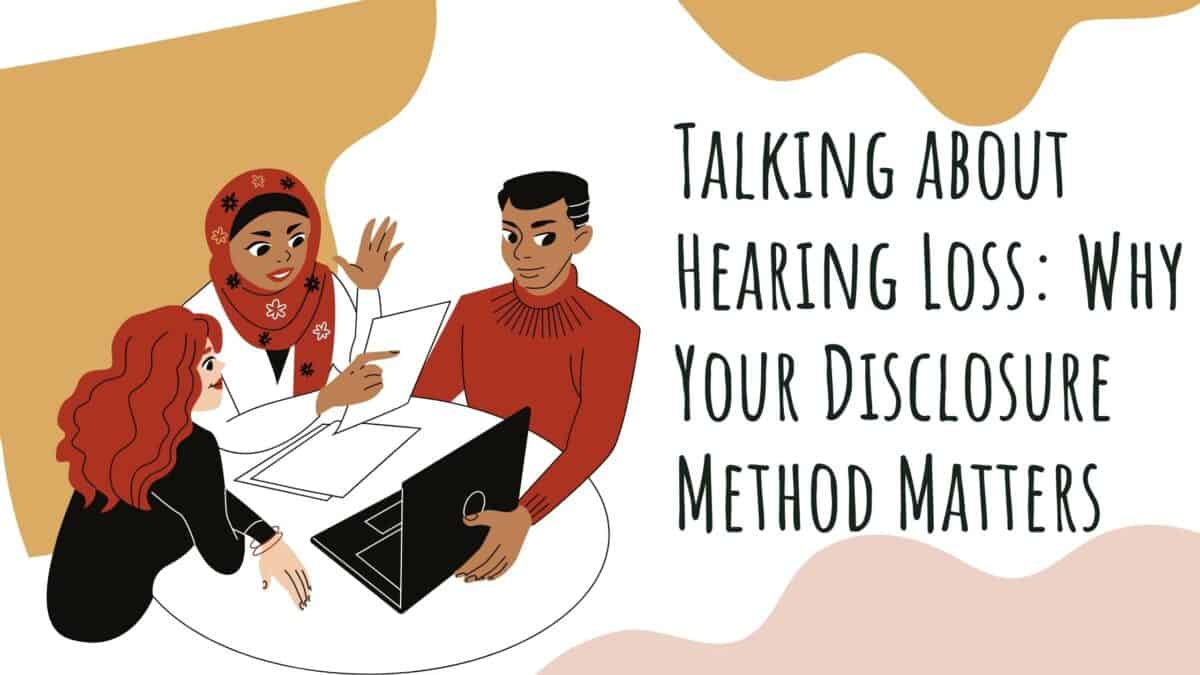Many people with hearing loss underestimate not only the toll it takes on themselves but also those around them. For the people who love and care for you, it becomes an added stress as you both struggle to communicate together day after day. You may find that you must ask people to repeat themselves or they may assume that you are just disinterested or not paying attention to what they are trying to tell you. This can build up resentment in even the most tested and sound relationships. However, hearing loss’s effect doesn’t stop there. Not only does it affect those who love and care for you but everyone you interact with each day including friends, family members, co-workers, employers, and acquaintances.
Why Pretending doesn’t Help
It’s all too easy to pretend you can hear and far too many people let misunderstandings slide because they tire of asking for clarifications due to a hearing impairment. Pretending you’ve heard what others have said compounds feelings of isolation, confusion, and loneliness. Many try to guess at what has been said, but this is often incorrect giving the people you speak to the idea that you are not paying attention.
Disclosure Methods
It’s important to not let miscommunications slide even if it feels easier in the moment. Letting people know that you have a hearing loss can make a big difference on how you succeed in communicating. Letting people know you have a hearing loss is often referred to as disclosure. Researchers have identified three separate types of disclosure and have noted their results.
Nondisclosure
The first type of disclosure is not actually a disclosure at all. Nondisclosure refers to avoiding the subject of hearing loss at all. Many people live for years in denial of admitting they have a hearing loss because they fear it is an admittance that they are getting older or that they are not as able as they once were. It’s important to fight this stigma, as it further can sabotage an individual’s success in their professional and personal life. In the nondisclosure method, rather than letting someone know that you have hearing loss, it is quite common to simply ask for accommodation of some kind. This may look like constantly asking someone to repeat themselves. While even people with normal hearing miss comments every now and then, and a hearing loss can go undetected by people around you to real issue is there is no resolution. Hearing loss in most instances in life long, progressively developing, and irreversible. You are going to have to learn to live with it and so are the people in your life. By not disclosing your hearing loss you provide no action for the people around you as to how to accommodate your hearing loss in the future.
Basic Disclosure
The second type of disclosure is known as “basic disclosure,”. Basic disclosure lets people know you have a hearing loss. While this is an important step in seeking help, it misses an important aspect of communication. Everyone’s hearing loss is slightly unique. Some people struggle with high frequencies and tones while others suffer with lower ones. Some people struggle with unilateral, or one-sided hearing loss while others experience it in both ears. Basic disclosure provides no instruction on how the people you’ve disclosed to can accommodate your hearing loss so you can hear clearly and communicate with greater success.
Multipurpose Disclosure
People with hearing loss, even when they are using hearing aids may need special accommodations when speaking to them. This includes maintaining eye contact, enunciating clearly, speaking at a reasonable speed, and providing pauses at the end of sentences. Multipurpose disclosure not only provides people in your life the knowledge that you have a hearing loss but provides communication suggestions to make conversations go smoother in the future. For instance, many people with hearing loss come to rely on facial expression and lip reading to make up for what they can’t hear. Let people know what helps you!
Treating Hearing Loss
While hearing aids can’t restore your original hearing, they are essential for many hearing impaired people to communicate with success. If you find that you struggle with hearing and have put off acting around treatment, remember that today could be the day that you make a change! Schedule a hearing exam today and start your journey towards healthier communication in every aspect of your life!

